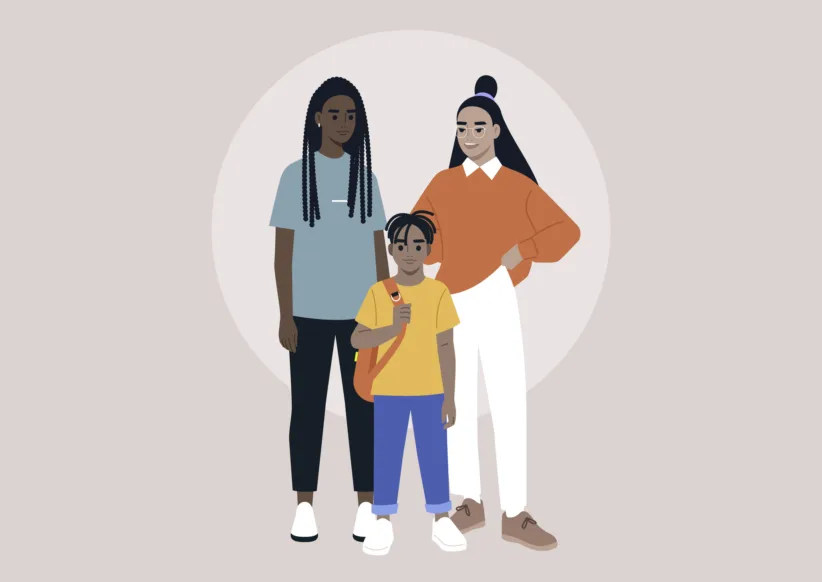In 2007, “New York Times” bestselling author Po Bronson, along with writer Ashley Merryman, wrote an explosive cover story for “New York” magazine about the inverse power of praise on children. For many parents, learning that praising their children’s intelligence could be detrimental to their development was a shocker. But that was just a preview of what was to come. In their new book, “Nurture Shock,” out this month, the co-authors offer groundbreaking new perspectives on a whole new range of parenting issues, from the surprising reasons why children lie to how much sleep kids really need. Their underlying premise is that many of the decisions we make as parents are based on good intentions rather than good ideas. As Bronson says, “Important science is being ignored.” Some of the most compelling chapters in the book were those that continued their discussion on praise and their research on how children view race—so in this interview with Bronson, we chose to largely focus on those topics. But for more of their provocative ideas, we highly recommend picking up a copy of the book.
What was your impetus for writing the book?
When we published our article in “New York” magazine [“How Not to Talk to Your Kids], the way the world reacted to it was overwhelming. Then we began looking for other blind spots, where science was saying one thing that seemed counterintuitive. But we weren’t coming in with any kind of worldview. We were more or less saying, “Here is some cool stuff that you’d like to know.” As Stephen [Dubner] and Steven [Levitt] wrote in “Freakonomics,” ‘A lot of what you think is wrong.’ It’s not exactly a thesis, but that’s what truly unites the book. A lot of these parenting books boil it down to some simple umbrella message. We didn’t want to un-complicate kids—we wanted to explore their complexity.
What did you find most surprising in your research?
Some small things that surprised me are: that popular kids are often the bullies; lying is a social skill; threatening punishment for lying just creates better liars; and that sleep (or lack thereof) can cause kids to be fat! Most shocking to me were the science on praise and race. In both cases it was totally mindblowing.
Let’s talk about your research on the adverse affects of too much praise on children. Why is this such an important message for parents to get?
Kids need to know how they’re doing in order to adjust—they need real honest feedback. What happens with kids who’ve been praised for their innate abilities, or just praised too often, is we’re interrupting their natural sense of learning to judge for themselves how well they’re doing, and they begin to expect and need praise as a reward. Any
sort of reward undermines intrinsic motivation and they start to do
things for the reward, rather than because they really like it. And they
tend to become focused on maintaining the image or label of being
smart, or a great artist or even tidy. What that usually means is that
they become risk-averse. They don’t want to do things that they fear
might reveal to other people that they’re not that smart after all. And
they tend to be very defensive and aggressive about their image. What a
kid needs is motivation to fall in love with things and love them
passionately. If you interrupt their falling in love with
something, you’re depriving them of the vehicle by which they grow and
learn the fastest.
You
also uncovered some surprising research about kids and race.
Specifically, that kids who go to more diverse schools don’t necessarily
have better racial attitudes. How did you feel when you learned that?
When I found out that
the more diverse a school is, the more each race or ethnicity will stick
to its own, and that kids who go to a diverse school don’t have better
racial attitudes, I was heartbroken. And all along scientists knew this.
Ashley and I were digging into the social science behind the Supreme
Court cases [for desegregation]. The original theory proposed by
[Gordon] Allport in the 1950s was called contact theory, and it argued
that kids needed diverse environments but that that would not be
enough—kids would need regular positive contact, with an authority
figure around, and they needed to have positive relationships. But we
went ahead with only one aspect—the diverse environment. I wish we could
do the last 30 years over again. The solution is not to stop
integration, but science tells us that we need to do more than just
throw kids together.
You also say that parents who don’t talk to their kids about
race are doing them a disservice, even though they may think they’re
being color blind. Should parents make conversation about race an
obligatory part of growing up?
Yes. But this was hard for me. I had a hard time
thinking I’m going to bring this up with my 3-year-old. It just felt
like out of her world. But I gradually began a conversation over time:
‘It’s important to choose friends not based on what color skin they
have. It’s important to have friends because you love them.’ It was as
bland as possible. And she was like, ‘Yeah.’ She could talk so naturally
about it and be so unbiased. We created a color blindness by talking
overtly about it. Kids are really confused about what racism is and what
it isn’t, and we have to help them. We are making it taboo by not
talking about it.
One
of your chapters deals with how a child’s performance on IQ tests is
wrong more than 70 percent of the time in predicting whether they will
be an exceptional student. That’s surprising especially given how big a
role such tests play in getting into schools here in New York.
To counterbalance this,
schools could do one of two things: They could be like my son’s school
which is first come, first served. Or they could at least admit what
they’ve got and not have an attitude: Admit [you] don’t have the best
kids. Admit that because we screen kids at 5, kids with high non-verbal
intelligence, which are going to be the best kids, are being rejected.
You will get a lot of very bright kids—and if you’re capturing ones near
the top, they won’t fall too far. But if what you’re looking for is the
cream of the crop, I can guarantee that you have rejected them if you
screen at age 5. [One option is to], build a K through 2 portion and
hold kids to a certain standard if they want to move on. This would
double the effectiveness of the screening.
With all the new ideas you’ve uncovered, how
has your own parenting style changed since writing this book?
It’s made being a
parent more interesting, more so than any one thing I’ve done.
Specifically when it comes to praise. Before, [I felt] I needed to
convince my kid that he was doing good so that he would be confident.
What I was saying was, ‘I’m going to lie to my kid, I’m going to be
dishonest for his own good.’ [But now] what’s happened with my parenting
is an honesty—my kids know they can count on me to tell the truth. I
think my kids feel like there’s an integrity to our relationship and I’m
not trying to manipulate their perception of what’s going on. By
saying, ‘well that didn’t go so well, but if you do this it will come
off better’—whether it’s in sports or academics—it’s the biggest macro
thing that happened to my parenting. Belief in what I say has replaced
the constant cheerleading.
Other Findings From “Nurture Shock”
– More progressive dads
who are very hands-on can have children who are just as aggressive as
those who come from less involved parents.
– It can be good for
your children to hear you fight, as long as they also hear the
resolution.
–
It’s not just interacting or speaking with your baby, it’s how you
respond to their babbles that will create stronger language acquisition.
– Your child’s relationship with her best friend is a strong
indication of what her relationship with a younger sibling will be like.
–
Fifteen-minute increments of more or less sleep will significantly
affect a child’s school performance respectively. High school students
who get at least eight hours of sleep tend to have greater
self-confidence.





















